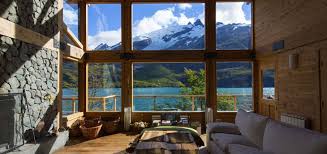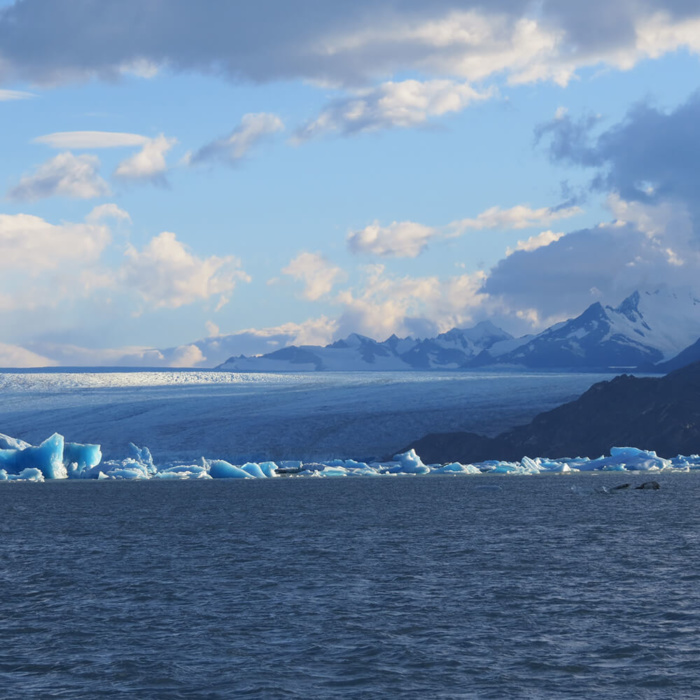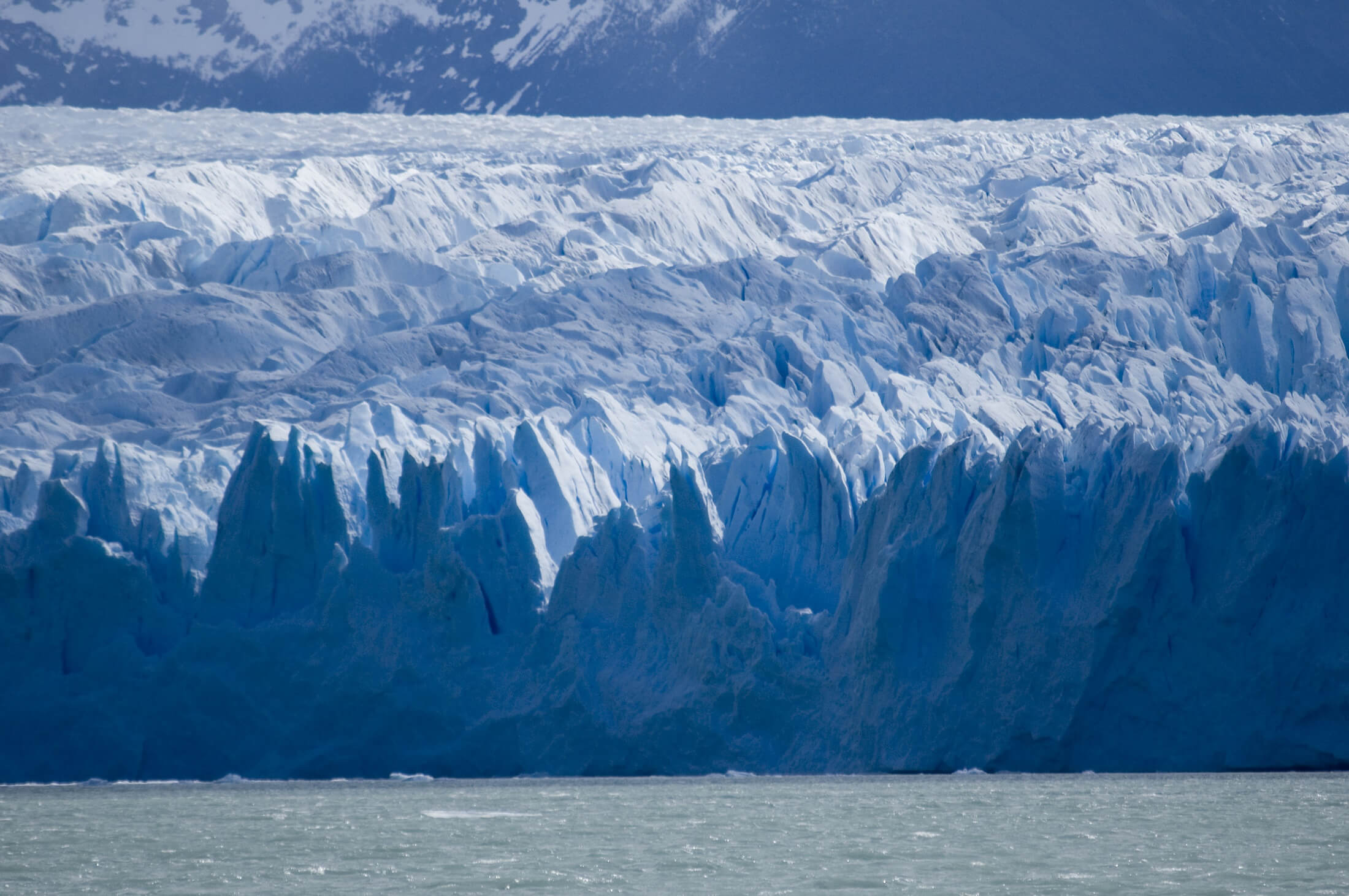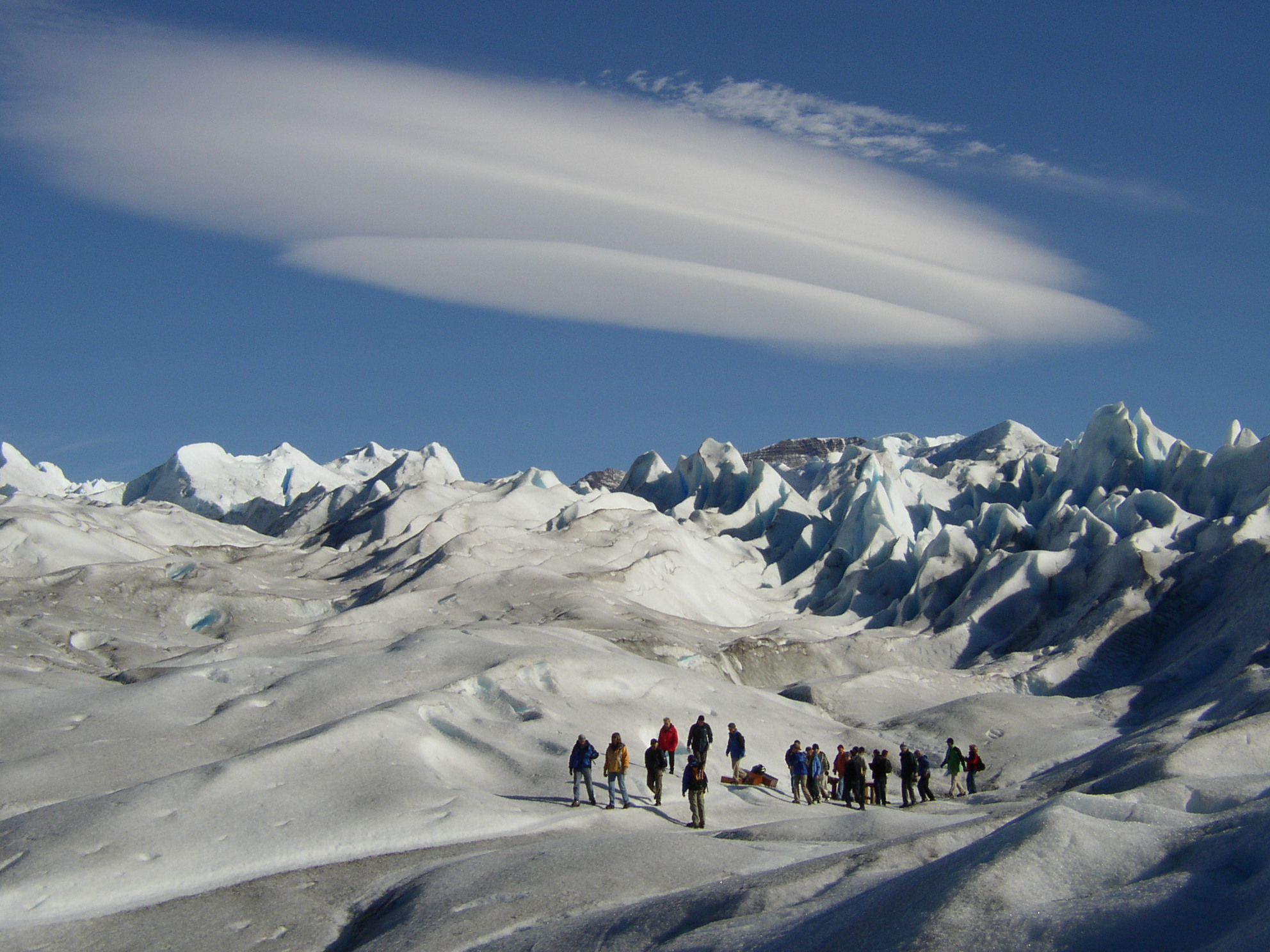Calafate (Patagonia)
Home » Destinations » Argentina »
Parque Nacional Los Glaciares
(Los Glaciares National Park)
(Los Glaciares National Park)
Perito Moreno
This is one of Argentina’s biggest attractions in Patagonia, and with good reason. This 5-km wide glacier calves into Lago Argentino in the middle of Argentina’s Los Glaciares National Park. It is part of the Southern Patagonian Ice Field, planet Earth’s third largest reserve of fresh water. It averages 74 meters in height, and is one of the world’s few advancing glaciers. The glacier forms an ice bridge, which breaks every 1-4 years. It last broke in March, 2016 when a piece 250 meters wide by 70 meters long broke off, causing huge waves in the lake below.
Upscape Picks: Take a boat ride down in the lagoon below the glacier to get up close and personal with the groans and cracking sounds the glacier makes. Or go to a different face entirely, to spend about five hours hiking on what is properly called “big ice.”
When to Go
We recommend visiting October through December and late February through April.
Good to know
Language: Spanish Currency: Argentine Peso (ARS) Visas/fees: Travel to Argentina does not require a visa for US/US/EU/CAN/AUS travelers.
What to do in Parque Nacional Los Glaciares: Calafate, El Chaltén, Perito Moreno
Tips from our Team
For a taste of Estancia living, we recommend Estancia Cristina near El Calafate (Argentina). It dates back to 1918 and is accessed by a 2-hour boat ride from Puerto Bandera, along the azure waters of Lago Argentino, also known as Lago General Carrera in Chile.
Take a boat ride down in the lagoon below the glacier to get up close and personal with the groans and cracking sounds the glacier makes. Or go to a different face entirely, to spend about five hours hiking on what is properly called “big ice.”
Ready to go? Here’s what to pack
Patagonia’s weather is as extreme as its landscapes and often unpredictable. Packing right makes all the difference for an enjoyable trip.
- Wind and waterproof outer layers (jacket and pants)
- Hiking boots
- Sun protection (hat, glasses and sunscreen)
- Gloves
- Thermal under layers
Where to stay: Overnight Recommendations
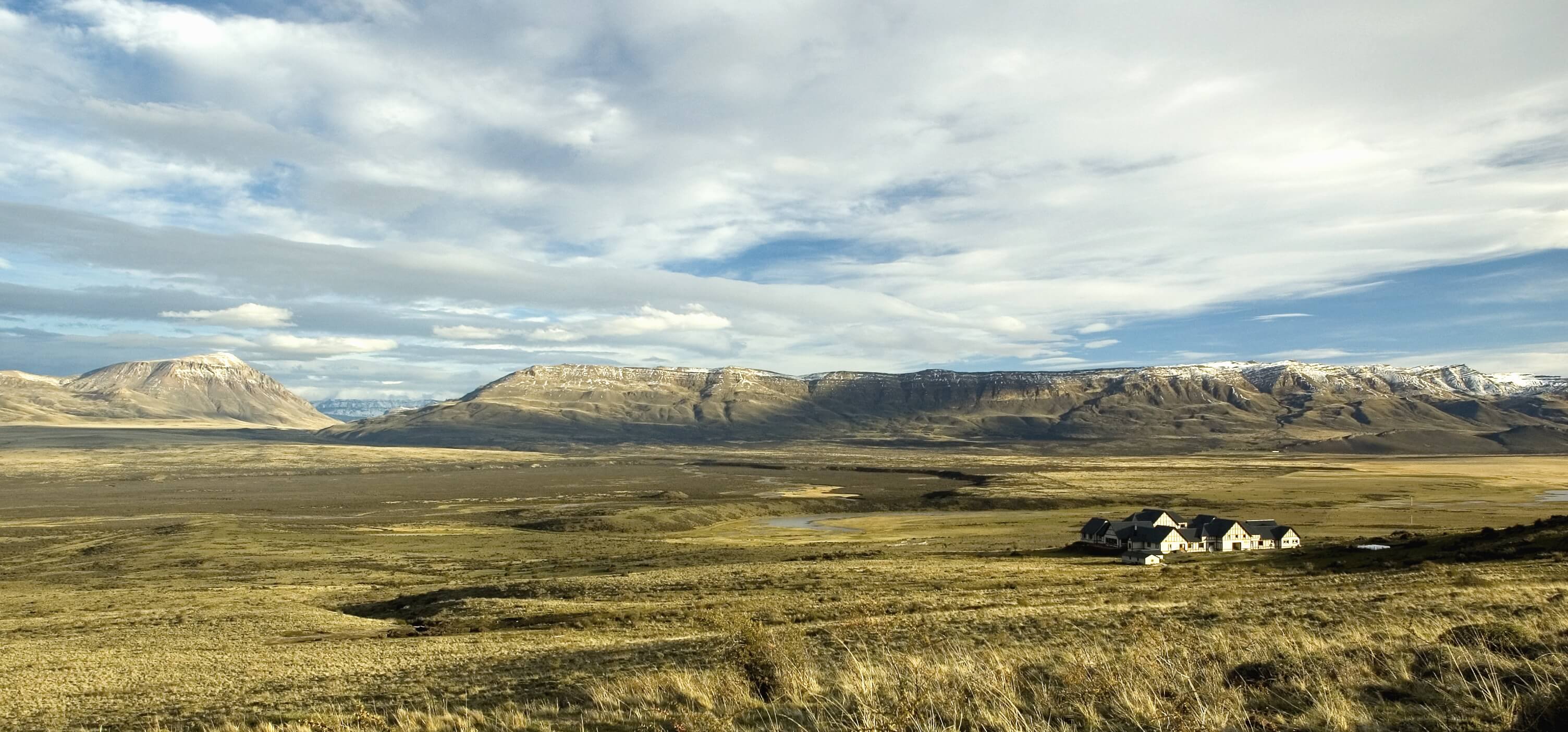
Eolo
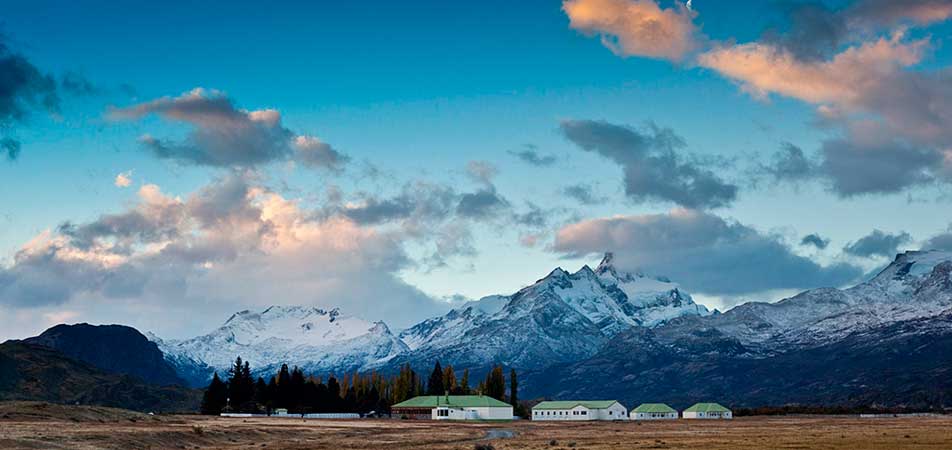
Estancia Cristina
